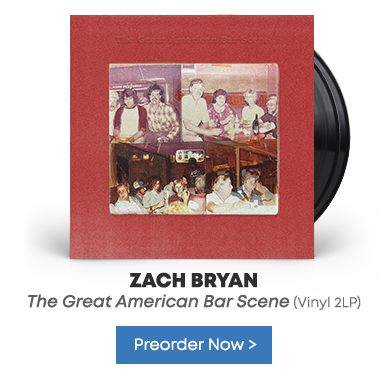Mondays can be tough. Have you noticed weekends appear to go by even more quickly during the stay-at-home orders? You'd think it would seem slower, as there is nowhere to go and nothing to do. But for me, it seems Monday morning immediately follows Friday evening. There's an expression I often used when things got too heavy for me: "I'm not sure what day it is...they all feel like Monday to me." Well, if all Mondays are going to feel like this one, I'm going to need a new expression. On a more pleasant note, I want to offer a great big thank you to all the fabulous musicians, singers, songwriters, producers, and audio technicians that have provided me with many lifetimes of music. Without their art, I would be lost.
Today, I'm grateful for the "Notes" column submitted by an old friend, Jeff Dorgay. Many of you know him as the creator of TONEAudio, an online magazine dedicated to hi-fi, various hobbies, and lust-worthy objects that appeal to music lovers. I met him in 2005, when he was creating the magazine's ambitious template. An extremely talented photographer, he spoke of wanting to show beautiful imagery of the gear he was fortunate to review. He wanted to have writers writing about craft beer and spirits. He wanted to discuss luxury automobiles and car culture – a topic about which he has immense knowledge. He believed music was the most important part of a lifetime dedicated to listening through the finest audio components. And he thought a magazine that put music first also had room for other cool stuff. After all, those of us who love music and high-end audio equipment have other interests.
The magazine has always been online only, and continues to have a distinguished look that differs greatly from the dedicated high-end audio magazines of the past. Being digital, TONEAudio is not limited by numbers or page counts. Jeff can use as much photography as he feels necessary. And he can include as many articles as he sees fit. The magazine is simply great fun. Those of you who have met Jeff at a hi-fi show know he is truly unique, possessing a strong passion for music and gear, just like us. And, being of a certain age, his music tastes and influences also jibe with many of our own. Today, he writes about his early listening experiences and how they led him to where he is today.
Today's Special Guest Contribution: Cheap Trick Cheap Trick
By Jeff Dorgay, TONEAudio Founder/Master Photographer/Car Expert/BMW Enthusiast/All-Around Good Guy
While growing up just 70 miles away from Music Direct, in Milwaukee, Wisconsin, my early college days were a lot like "Wayne's World." Living on Milwaukee's East Side, near the University of Wisconsin campus, I was near several great clubs, with major acts playing on a regular basis. Sure, you can tease me about seeing Styx and REO Speedwagon, but the band that cut through all the muck was Rockford, Illinois-based Cheap Trick.
The group used to play Milwaukee so much that the local music paper referred to them as a Milwaukee band. The quartet's favorite place to play in town, before the release of its self-titled debut album, was Teddy's on Prospect Avenue. On nights where the fire code was ignored, that club could hold 100 people. But in late 1976, before the band hit its stride, you could see Cheap Trick with just 30 people in the audience. And the group played just as hard as it would in front of the Budokan audiences a couple of years later. But that's another story for another day.
Heavy rock shows in the mid-to-late 70s had become tedious, with 20-minute drum solos and elongated bass solos. Ugh. Punk was also surfacing, but those shows too often devolved into who could kick the hardest and spit the farthest. A different kind of fun to be sure, but almost none of those guys could play. Cheap Trick was something else. The band had energy, it was fun, and its songs were clever. And the group got to the point. Lead guitarist Rick Nielsen said in an interview years later, "I didn't play solos because I wasn't that good on the guitar at that point." What Cheap Trick lacked in virtuosity it more than made up for in enthusiasm. 45 minutes never went by so fast.
Standing in line at Radio Doctors, waiting to buy the debut record on a cold winter day, everyone present talked about whether the album would capture the essence of Cheap Trick. We were not disappointed. I vividly remember the day. After listening to the album back to back – twice – I shook the dust from my early Beatles records. Experiencing all those great two-and-a-half-minute pop songs again, thinking, "I finally get it."
I realize such a revelation might be blasphemy for dedicated Beatles fans in the audience. We can get all geeky about harmonies, musical structure, and the like. Still, I think what Cheap Trick truly shares with the Beatles – especially on those early tunes – is sheer playfulness. Cheap Trick never sounds dated and is a record I can play for any age group, and they dig it.
Listening to Cheap Trick today, while writing this, I can genuinely say it is one of the most pivotal records in my life. It cleared the path for so much more music on the horizon from Elvis Costello, XTC, Squeeze, and the like. None of that music would have made its way to my record collection without Cheap Trick. And 43 years later, the record still stands up. For those whose tenure with Cheap Trick starts with "Surrender," you've got some homework to do.
Indeed, from the second you lower the stylus on "ELO Kiddies," Cheap Trick defines power pop and so much more. And while Cheap Trick is often referred to as Beatlesque, the more you listen to this record, there's no question the quartet was its own band. The band's next record, In Color, expands on the foundation laid down here and spawned the single "I Want You to Want Me." Quite ambitious, considering the self-titled record was released in February 1977 and the follow-up in September of the same year.
In the all-analog world of 1977, these two records would barely fill one CD, yet there is minimal filler to be found. The tracks on these two records would go on to become the backbone of the group's Cheap Trick at Budokan record, which launched the quartet to stardom shortly after its release. But the pure power and innocence on the first Cheap Trick record remain something unique to treasure.
Although I grew up with the Fab Four (and tremendously respect its output), the Beatles never clicked until this record – seriously.
Follow TONEAudio on Twitter at @ToneAudio and on Facebook at @TONEPUB2.
| In This Article |
11th May 2020




































